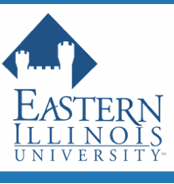Length of Presentation
50 minutes
Start Date
7-10-2022 11:00 AM
End Date
7-10-2022 11:50 AM
Document Type
Presentation
Abstract
People with identified disabilities intersect every part of humanity – socioeconomic status, ethnicity, culture, geography, et al. – and are entitled to appropriate accommodations in public spaces. Sometimes, more often than we might expect, the accommodations we provide for individuals are beneficial to a much larger group because of this intersectionality. The presenters will offer research and practical information and will discuss with the audience how different accommodations in public spaces, in our classrooms – kindergarten through higher education – can have a larger impact and provide access and support for all. We will present research-based information and include the practical application of the research in hopes of encouraging thought and hopefully, practice.
Description
The reality is that disability cuts across all lines or distinctions of people. No matter the socio-economic status, ethnicity or race, gender or non-binary, or any other social distinction, there are people with a physical and/or intellectual disability in that group. Local, state, and federal laws currently require the inclusion of access and opportunity for learning and success for disabled individuals. Diversity, equity, and inclusion is an expectation in more and more public spaces, including classrooms, early childhood through higher education. Understanding intersectionality may provide insight into how and what we do. This presentation will provide some background and examples to support incorporating accommodations that can be used by and benefit all. Teachers, at all levels, understand the expectations and challenges to inclusion balanced with the developmental expectations, based on age and grade. In higher education, we understand that our campuses include students from many backgrounds and experiences. In teacher preparation programs, we are currently working on developing expectations for inclusion, diversity, and equity for all students AND for re-examining our teacher preparation programs for TEACHING inclusion, diversity, and equity for our students. The hope is that they will be better prepared to be teachers for their students. Understanding the intersectionality of the accommodations we make for more students than just those with an identified disability, may be a way to support inclusion, equity, and diversity. Our presentation will provide examples that have been accomplished and those that have been suggested that are “necessary for some and good for all”. We anticipate that participants who are teachers and administrators from elementary through higher education will be interested in this topic. We are hopeful that students, with and without disabilities, will be interested in participating in a workshop with this topic. Their input and insight will be welcomed and respected.
Creative Commons License

This work is licensed under a Creative Commons Attribution-Noncommercial-No Derivative Works 4.0 License.
Intersectionality and Disability
People with identified disabilities intersect every part of humanity – socioeconomic status, ethnicity, culture, geography, et al. – and are entitled to appropriate accommodations in public spaces. Sometimes, more often than we might expect, the accommodations we provide for individuals are beneficial to a much larger group because of this intersectionality. The presenters will offer research and practical information and will discuss with the audience how different accommodations in public spaces, in our classrooms – kindergarten through higher education – can have a larger impact and provide access and support for all. We will present research-based information and include the practical application of the research in hopes of encouraging thought and hopefully, practice.





Speaker Information
Dr. Jennifer L. Stringfellow, holds a Ph.D. in Special Education and is a tenured-faculty member of the Special Education Department at Eastern Illinois University. She teaches content as well as supervises field experiences in public and special school systems in the area. The licensure for a special education teacher is very broad, including knowledge and skill for kindergarten through high school students with a learning disability and more significant intellectual and/or physical disabilities. This requires that our teacher candidates have a broad knowledge base as well as broad experiences of the different settings in which a licensed Special Education Teacher works, prior to graduation. Dr. Stringfellow’s research and service centers on providing supports for individuals and their families through transitioning from school to adulthood.
Ms. Sophie N. Jones is an undergraduate candidate in our Teacher Preparation program. She is devoted to learning about and teaching individuals with disabilities. She is in her 3rd year of our program and is looking forward to completing her undergraduate work, obtaining her IL license, and working as a Special Education teacher in a school system in the surrounding area. She is a bright and talented student who is a leader in her classes. She helps others understand some of the more difficult concepts with care and encouragement. She is excited to present at the RISE conference in order to have the experience prior to graduation. She takes to heart that Special Education teachers tend to be leaders at their schools.